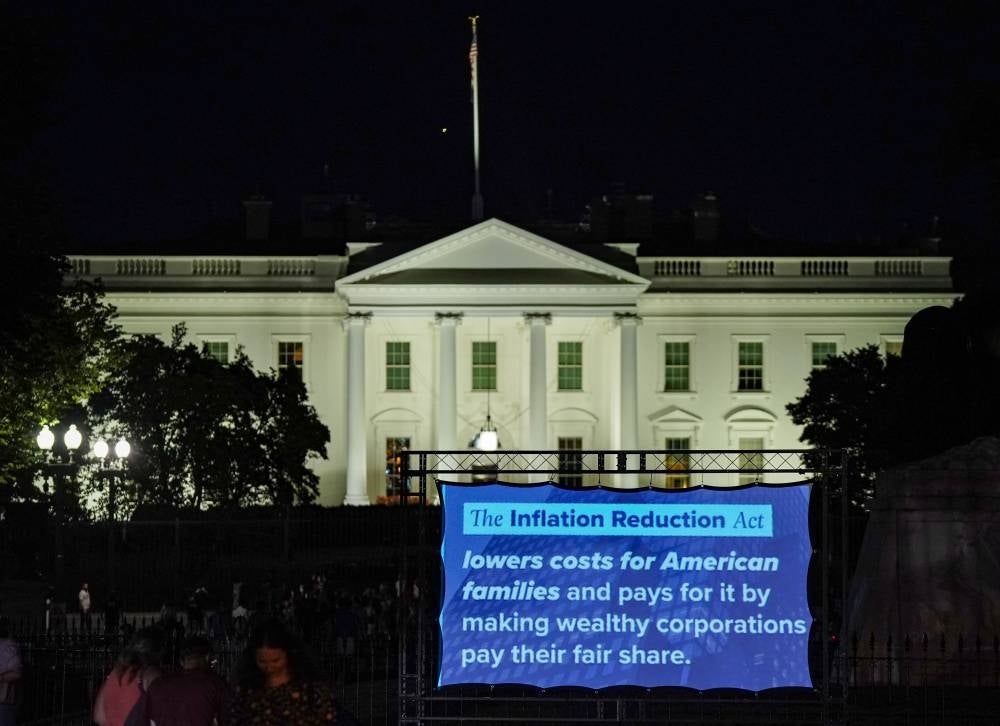Us House of Representatives passes Inflation Reduction Act in narrow vote

HOUSTON - The US House of Representatives passed the Inflation Reduction Act on Friday along party lines.
The legislation that passed in a 220-207 vote secured a huge win for President Joe Biden and the Democratic party months before the midterm elections in November.
"It is a resounding victory for America's families starting at their kitchen table," House Speaker Nancy Pelosi told House members. "Our Inflation Reduction Act is a robust cost-cutting package that meets the moment, ensuring that our families thrive and that our planet survives."
The Democratic party came together from all sides to praise the bill which addressed a multitude of issues beyond inflation, including taking aggressive action on climate change, lowering medical and prescription drug costs and reducing the national deficit, Anadolu Agency reported.
The plan includes a record US$$369 billion in spending on climate change and energy policies projected to slash US carbon emissions by roughly 40 per cent by 2030.
It also allocates US$$64 billion to reduce health insurance costs by locking in lower premiums under the Affordable Care Act, saving 13 million families an average of US$$800 per year.
The bill will also cap drug costs at US$$2,000 and allow the federal government to negotiate lower prices for prescription drugs.
It would be funded by imposing a 15 per cent corporate tax on wealthy corporations. The plan also spends US$$80 billion to boost the Internal Revenue Service's enforcement and compliance divisions which are expected to yield US$124 billion in revenue.
While the measure will not immediately affect rising gas and food prices, it does seek to reduce the deficit by US$$300 billion in the next 10 years, with total provisions of the bill estimated to raise US$737 billion, as well as reduce the overall deficit by nearly US$2 trillion in the next two decades.
The bill narrowly passed the Senate in a 50-50 vote with the deciding tie-breaking vote cast by Vice President Kamala Harris.
It now goes to Biden's desk to be signed into law. - BERNAMA














